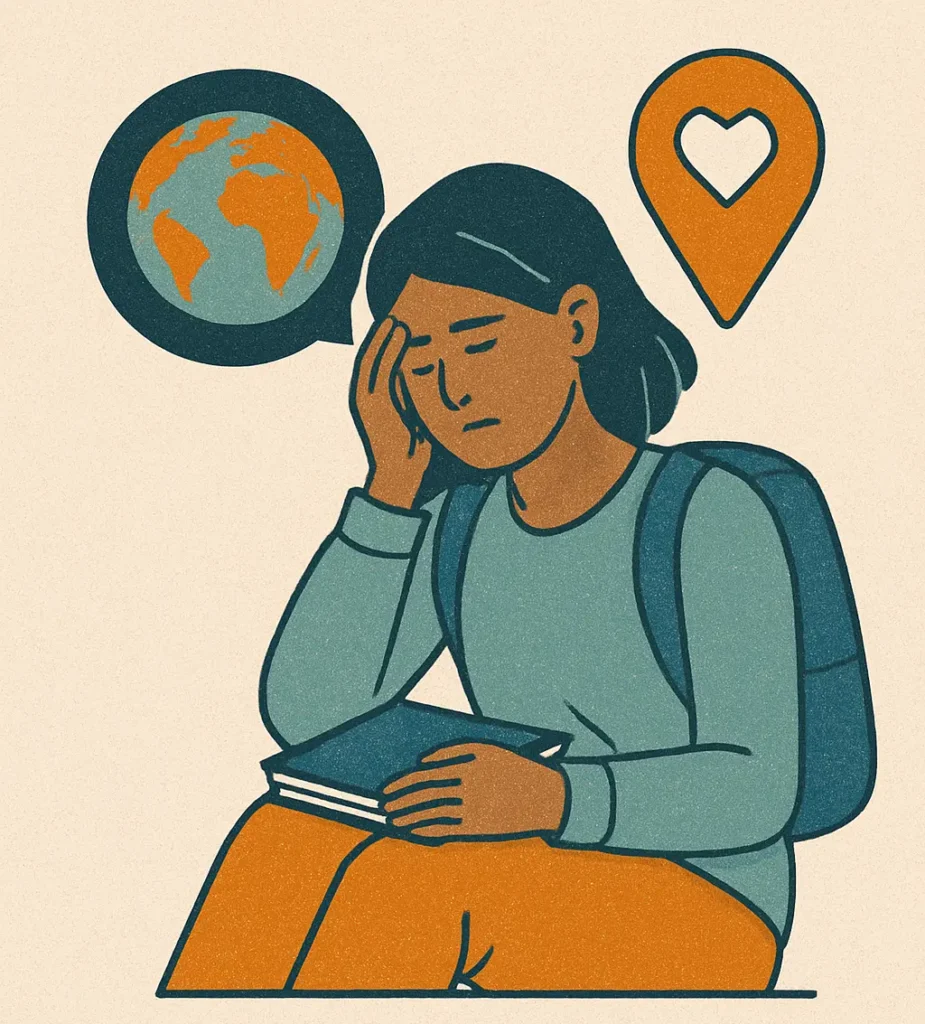Moving abroad for education is a dream come true for many international students—but beneath the excitement lies a complex web of emotional, psychological, and cultural challenges that can significantly impact mental health.
The Hidden Struggles of International Students
International students face a unique intersection of stressors: academic pressure, language barriers, cultural adjustment, social isolation, financial stress, and immigration anxiety. While these students often demonstrate resilience and determination, many silently battle anxiety, depression, and loneliness.
According to a 2022 report by the American College Health Association, international students are nearly twice as likely to report feeling isolated compared to domestic students. A global study published in the Journal of American College Health found that up to 45% of international students experience symptoms of depression or anxiety during their studies abroad (Forbes-Mewett & Sawyer, 2016).
Why Mental Health Needs Go Unmet
Despite these high rates of distress, international students are significantly less likely to seek help. Barriers include:
- Cultural stigma around mental health
- Language difficulties in expressing emotional struggles
- Unfamiliarity with healthcare systems
- Fear of impacting visa status
- Lack of culturally competent services
In fact, a survey by the Healthy Minds Network found that only 25% of international students with mental health needs accessed counseling services, compared to 48% of domestic students (Lipson et al., 2021).
Cultural Adjustment & Identity Strain
The process of adjusting to a new country often brings identity challenges. Students may feel pressure to conform to new norms while suppressing aspects of their own culture. This “cultural dissonance” can erode self-esteem and cause internal conflict. Homesickness, discrimination, and microaggressions further compound the psychological toll.
Moreover, financial stress is a common burden. Many international students are ineligible for federal aid or on-campus employment and may face guilt over family sacrifices made to fund their education.
Strategies for Support and Resilience
1. Normalize Mental Health Conversations:
Cultural stigma must be addressed through peer-led initiatives, multilingual awareness campaigns, and partnerships with cultural student associations.
2. Culturally Inclusive Counseling:
Universities should provide counseling services staffed by professionals trained in cross-cultural psychology and offer sessions in students’ native languages when possible.
3. Peer Support Programs:
Mentorship models and support groups can reduce isolation and foster connection. Upperclassmen or alumni from the same country can provide valuable insight and emotional support.
4. Academic & Immigration Flexibility:
Policies that allow for mental health accommodations—such as flexible deadlines, part-time study, or leave of absence without visa penalties—can be lifesaving.
5. Digital Mental Health Tools:
Apps offering meditation, mood tracking, and journaling in multiple languages offer private and stigma-free ways to cope.
A Call to Action
International students are an integral part of the global academic community. They bring diversity, talent, and cultural richness to campuses worldwide. It’s time we ensure their emotional and psychological wellbeing is treated not as an afterthought, but as a foundational aspect of their success.
By creating culturally responsive and accessible mental health systems, we not only support individual students—we build stronger, more inclusive institutions that honor the global fabric of education.
Key Statistics:
- 45% of international students experience depression or anxiety (Forbes-Mewett & Sawyer, 2016)
- Only 25% seek mental health services (Lipson et al., 2021)
- 60% report feelings of intense loneliness (ACHA, 2022)
References:
- Forbes-Mewett, H., & Sawyer, A. M. (2016). International students and mental health. Journal of International Students, 6(3), 661–677.
- Lipson, S. K., Lattie, E. G., & Eisenberg, D. (2021). Increased rates of mental health disorders among international college students. Healthy Minds Network.
- American College Health Association (2022). National College Health Assessment – International Student Report.
- Mori, S. (2000). Addressing the mental health concerns of international students. Journal of Counseling & Development, 78(2), 137–144.


